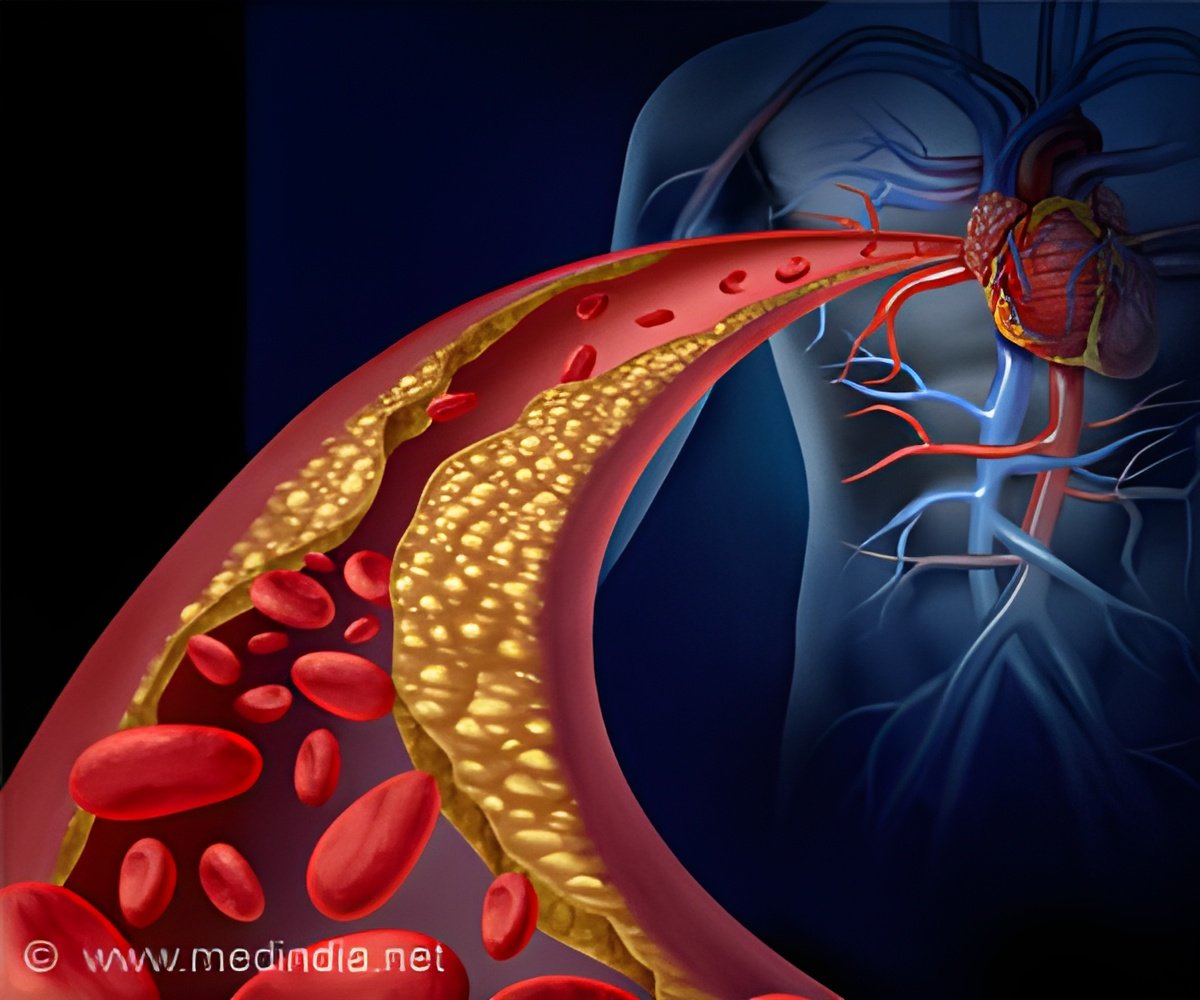Familial hypercholesterolemia (FH) patients are at a higher risk of developing heart disease. However, timely diagnosis and more aggressive cholesterol-lowering treatments may help reduce the risk of cardiovascular events.

‘Familial hypercholesterolemia (FH) patients are at a higher risk of developing heart disease. However, timely diagnosis and more aggressive cholesterol-lowering treatments may help reduce the risk of cardiovascular events.’
Read More..




In new research, 52 percent of adults with FH still had LDL-cholesterol over 100 mg/dL despite being on multiple cholesterol-lowering treatments. In addition, these individuals with FH had high heart attack, stroke, and vascular procedure rates, with an annualized cardiovascular event rate of 2.21 per 100 patient years overall, and 4.57 if an individual had a prior cardiovascular event.Read More..
"These data from the CASCADE FH Registry demonstrate that individuals with FH are truly a vulnerable, high-risk population for future heart and stroke events, despite being on multiple treatments," said P. Barton Duell, MD, Professor of Medicine, Director, Lipid-Atherosclerosis Laboratory, Center for Preventive Cardiology, Knight Cardiovascular Institute, Oregon Health and Science University.
"These data suggest that FH patients without known heart disease may actually have a risk of heart attack that is comparable to the risk in patients without FH who have already had a heart attack. Most individuals with FH will require multiple medications to adequately lower the LDL-cholesterol level to below goal. Adding additional medications to achieve an LDL-C level that can help prevent a heart attack, particularly for those who already have heart disease, needs to become the standard of care."
While cardiovascular event rates were high overall, rates of major cardiovascular events were almost six times higher among individuals with prior cardiovascular disease compared to those without. These data underscore the need to treat most patients with FH much more aggressively, possibly with an optimal LDL-C target that may be < 70 mg/dL.
"These five years of data from across the United States underscore the impact of life-long exposure to LDL cholesterol in the FH population," said Katherine Wilemon, Founder and CEO of the FH Foundation.
Advertisement
The results confirmed very late diagnosis of FH, at age 50 (plus or minus 18 years). Lack of awareness of FH in the public and medical community contributes to low diagnosis rates in the United States.
Advertisement
"Today, there are more safe and effective treatments for individuals with FH. With multiple LDL-C lowering drugs, plant sterols, LDL apheresis and exciting experimental therapies in development, individuals should advocate with their healthcare providers to add treatments until their LDL targets are achieved," added Samuel Gidding, MD, chief medical officer for the FH Foundation.
Source-Eurekalert















